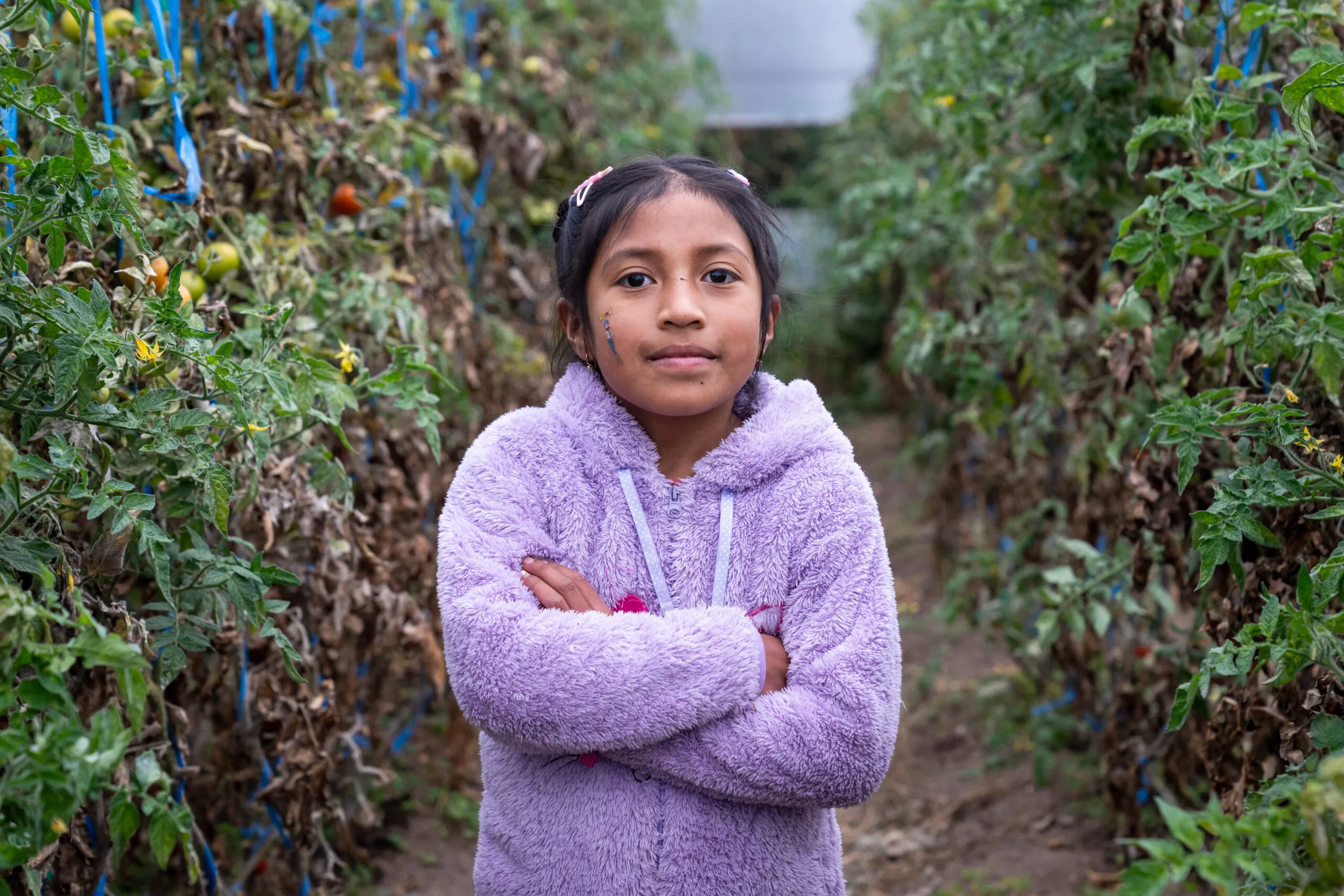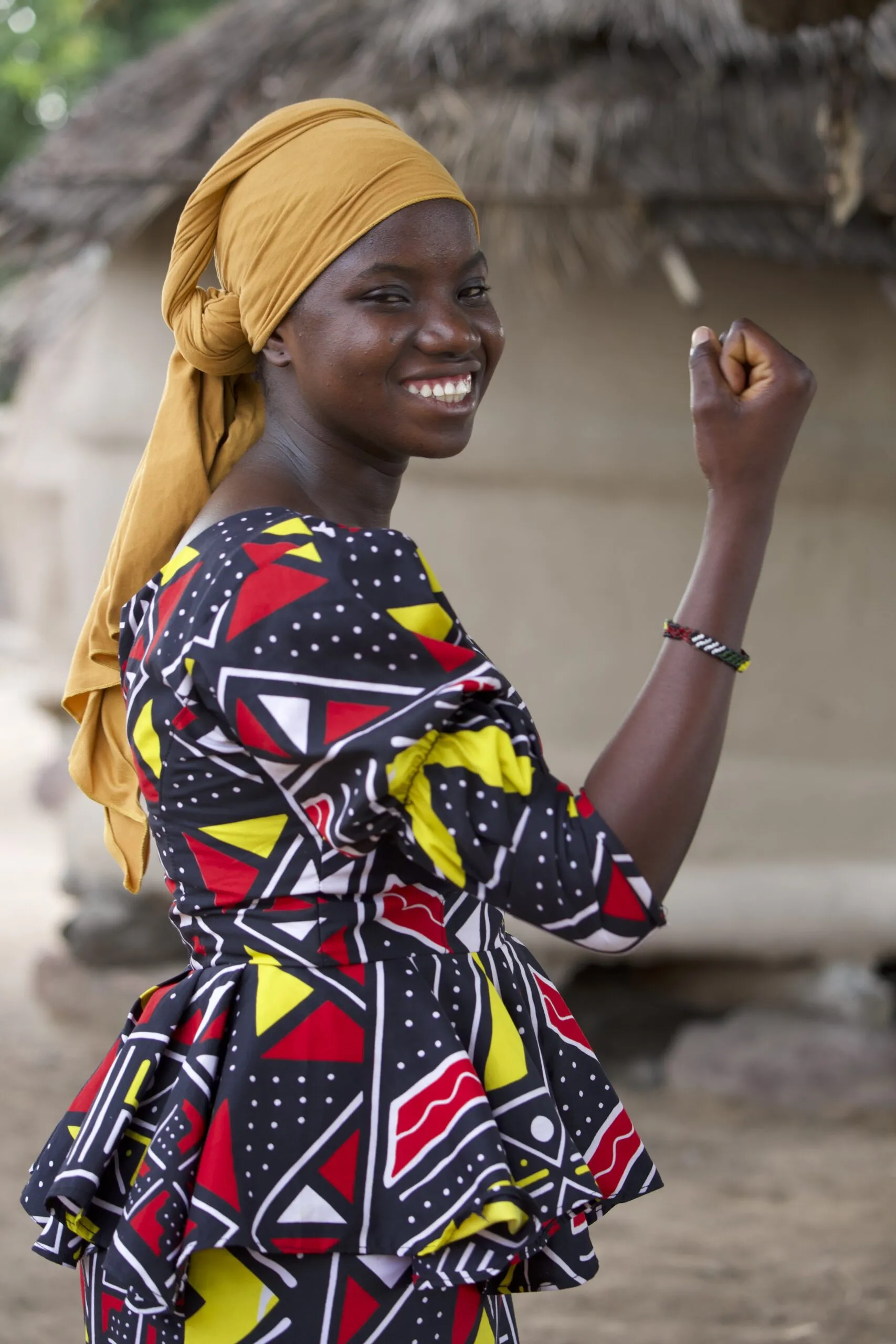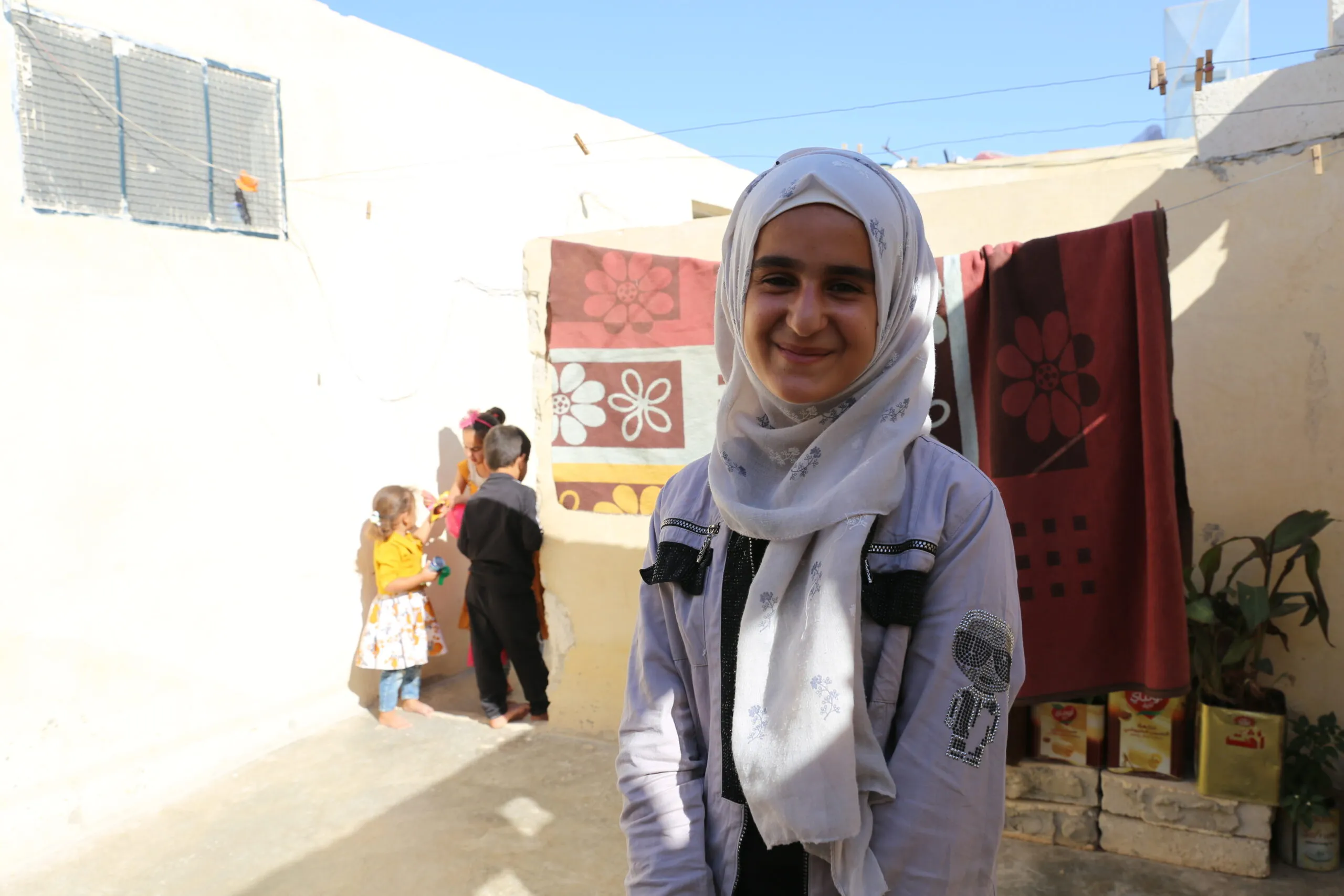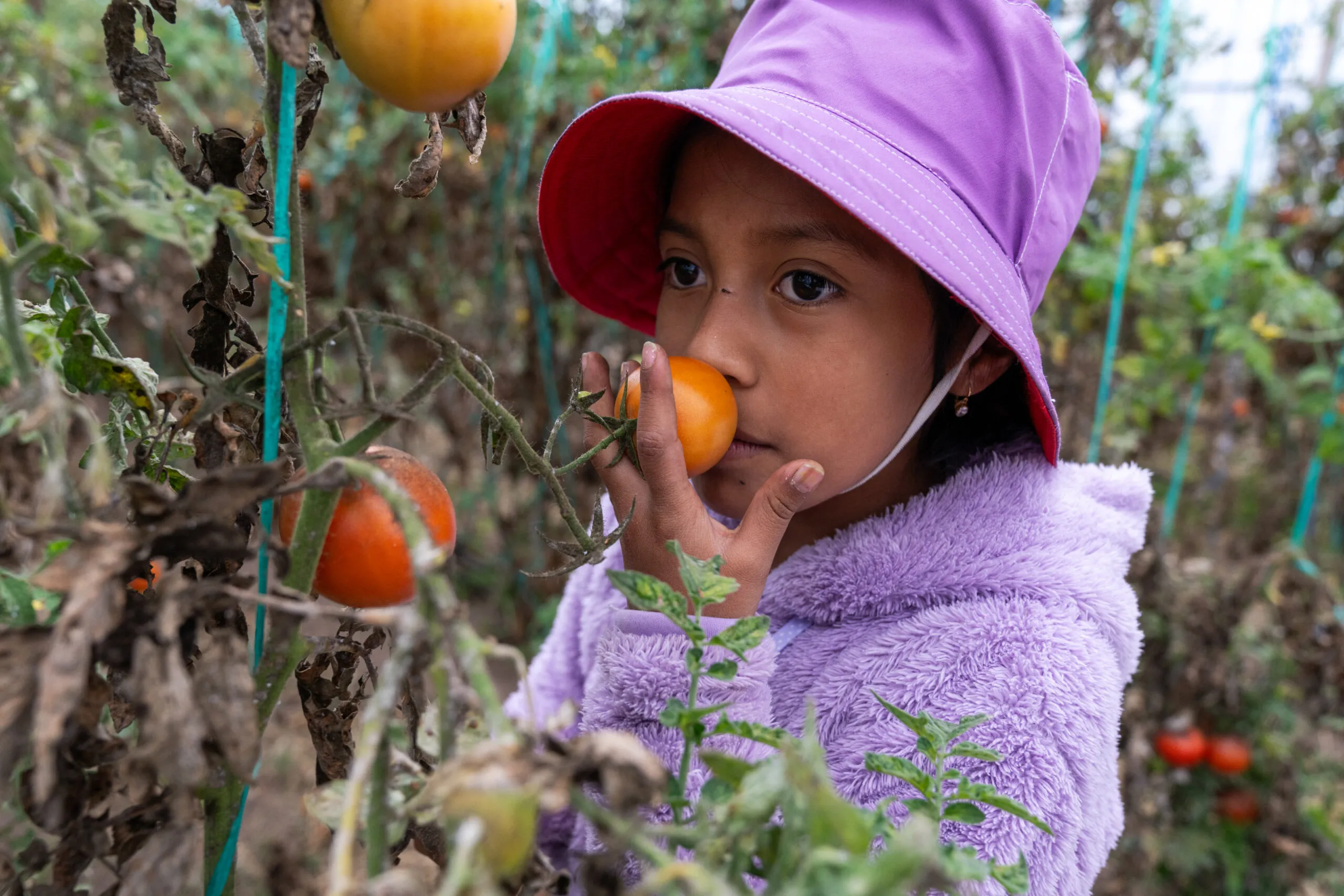
Perla helps her mother grow crops in Ecuador sustainably. Photo: Ana Maria Buitron/CARE
Perla helps her mother grow crops in Ecuador sustainably. Photo: Ana Maria Buitron/CARE

Karia N’Dao, a 17-year-old from Soguè, Mali, is a leader in the Benkadi Association for girls’ rights.
“I want to be a police officer after my studies,” she says. This type of future is possible now that forced or early marriage doesn’t feel like the only option.
Through CARE’s Tipping Point program, she learned about the consequences of child, early, and forced marriage (CEFM) and gained the leadership skills needed to help other girls in her community.
Karia is actively educating not only the girls in Soguè, but the parents, too, changing minds about child marriage and the social norms that keep it in place.

Raghad*, 13, from Syria, lost her home in the February 2023 earthquake but found solace in art and CARE’s psychosocial support sessions.
“I’m proud of myself for continuing my education despite the repeated displacement and the years I missed,” she says. Raghad recently returned to school and is slowly rebuilding her life while advocating for more support for children in displaced communities.
*Name changed for anonymity

Eight-year-old Perla from San Isidro, Ecuador, works with her mother in their agro-ecological plot to combat the effects of climate change.
“From my paternal grandmother, I inherited strength and bravery and the love of vegetables. From my maternal grandmother, confidence and willpower,” says Perla. Her biggest concern is water scarcity in her community, where she urges leaders to act.
“If we take care of the earth, the earth will take care of us,” she says.
